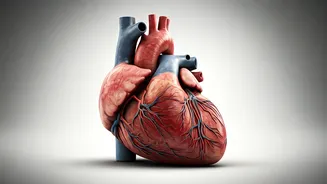The Kardashian Challenge
Kim Kardashian’s extreme weight loss journey leading up to the 2022 Met Gala has become a point of discussion. To fit into Marilyn Monroe’s iconic “Happy
Birthday, Mr. President” gown, which was unalterable, she opted for a drastic approach, shedding 16 pounds in just three weeks. This swift transformation raised questions, with many wondering if it was a healthy approach. While the results were undeniable, with Kim successfully wearing the dress, the methods employed demand a closer look.
Kim's Transformation Strategy
The strategy Kim Kardashian employed was an all-in approach, involving strict dietary changes and intense exercise. She completely eliminated sugar and carbohydrates from her diet, consuming only what she deemed “clean” vegetables and protein. This was coupled with a rigorous exercise regime, including running on a treadmill twice a day. Furthermore, she used a sauna suit multiple times daily to increase sweating. Although she maintained that she did not “starve” herself, the process was undoubtedly very rigid, designed specifically to meet a very specific goal: fitting into the unalterable Monroe gown. Her trainer supported this plan as disciplined and healthy enough for this short term goal.
Potential Short-Term Upsides
Despite concerns, aspects of Kim’s dieting principles might offer short-term advantages. Cutting out carbs and sugar can lead to a quick reduction in water weight and glycogen stores, which can be visible quickly. The discipline required to adhere to such a regimen can boost mental strength and focus, helping to achieve a concrete goal in a limited time. A diet high in clean vegetables and protein could assist in preserving muscle mass during weight loss, providing essential nutrients. The inclusion of treadmill workouts and sauna suits likely increased calorie burn, potentially accelerating weight loss over the short term.
Serious Health Risks
Experts flagged several risks associated with Kim’s 3-week transformation. Dietician Nichola Ludlam-Raine pointed out that cutting carbs could lead to water and glycogen depletion, meaning some lost weight could be water rather than fat. Rapid weight loss, exceeding the recommended 1–2 pounds per week, can cause electrolyte imbalances, gallstones, fatigue, nausea, and digestive issues, as warned by Jonathan Valdez, RDN. Furthermore, cutting out carbs can deprive the body of essential energy sources, while an over-reliance on cardio can lead to muscle loss and slow metabolism. These extreme measures can also contribute to disordered eating and mental health issues.
Important Takeaways
To promote healthy weight management, it’s advisable to avoid crash diets and focus on sustainable, long-term strategies. Health professionals usually advise losing weight slowly—around 1–2 pounds per week—instead of resorting to extreme short-term measures. Opting for a moderate, well-rounded diet that includes carbohydrates, proteins, and healthy fats is crucial for sustainable weight management. Maintaining hydration and monitoring electrolyte levels is important when making significant changes to your diet and exercise routine. Since such diets can trigger or worsen disordered eating, it's vital to be aware of one’s mental state and seek guidance if behaviors become restrictive or stressful. Consider consulting a dietician, doctor, or certified trainer, particularly if you have existing health issues.















